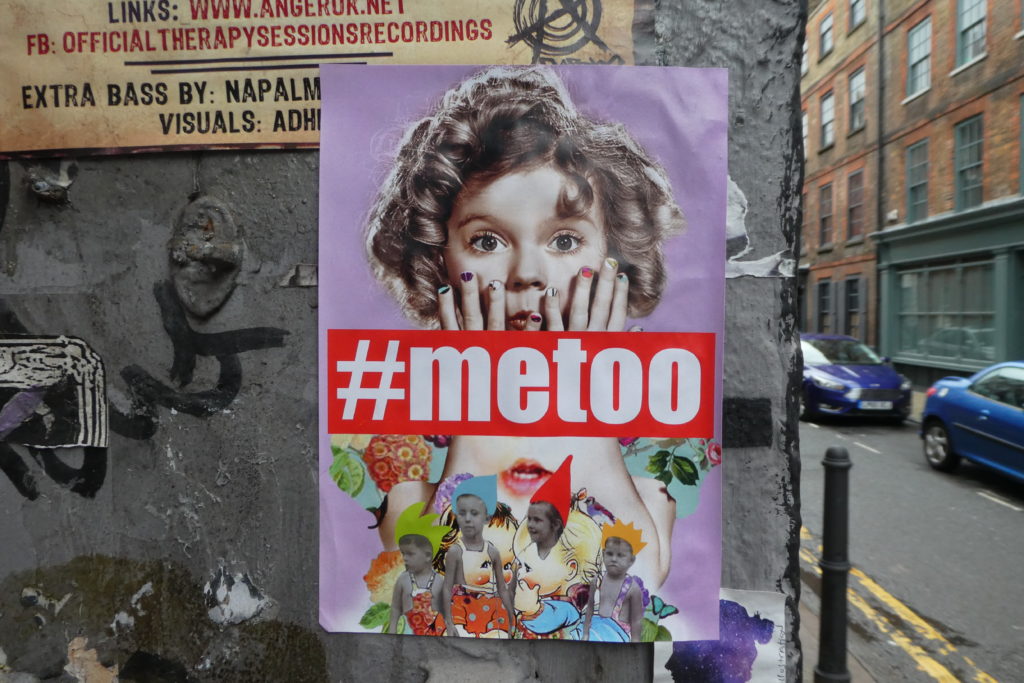
French and American Feminism: Who Has it Right?
France and America have both made great strides for feminism these past few years. Although they have the same goal of equality, they seem to have two opposite ideas of how to achieve it. So who’s right?

At the end of the day, the differences come down to where the rules for equality are, from the top level of the government to the bottom level of individual interaction. One of the best ways to see the differences is to get a bird’s eye view and start at the top.
French President Emmanuel Macron has promised to make gender equality a top priority during his presidential term. To live up to the promise, the French government has implemented an international strategy for gender equality, providing concrete goals and measurable progress for women’s rights.
A quick glance at the numbers prove equality is well on its way. Of the 22 members in Macron’s cabinet, 11 are women, while 223 of the 577 members of Parliament are female. 2018 saw yet another concrete victory for equality with the measure outlawing verbal harassment, including catcalls and unwanted sexual comments. Catcallers and businesses refusing to close the wage gap now face hefty fines and governmental reprimand.
At the top of the United States government, women are busy breaking records but still falling short of national equality.
As President Trump reported during his State of the Union address, “All Americans can be proud that we have more women in the workforce than ever before — and exactly one century after the Congress passed the constitutional amendment giving women the right to vote, we also have more women serving in the Congress than ever before.”
While female representation has reached record numbers in government, only 102 of the 441 members of Congress are women and 25 women are present in the 100-member Senate. Only 5 of the 22-members of Trump‘s cabinet or cabinet-level officials are female. This accomplishment still marks the path of progress, but as far as raw numbers are concerned, France remains one large leap ahead of America in terms of governmental equality.
However, changing the government is only half of the feminist fight. The real differences between feminism lie in the cultures of the countries, something a lot more difficult to change.
One of the most visible aspects of feminist culture in the US is the #MeToo movement that has taken the United States by storm. Awareness for sexual assault and harassment skyrocketed, with the hashtag used more than 19 million times on social media. This led to a flourishing feminist movement, with marches, rallies, and conversations becoming more common by the day.
However, in French eyes, the consequences may have gone too far.
What was intended as a campaign for awareness became ammunition for war. In an open letter criticizing the movement, signed by 100 prominent French women (and headed by French actress and feminist icon Catherine Deneuve), the French perspective argued that #MeToo has created a singular mentality of hostility, an army of “thought police” only supporting one side of the discussion. The French culture values the heated debate, where in America the goals focus around achieving harmony.

The movement created an atmosphere of hostility and tension between the genders against its intentions. The accusations of sexual assault that emerged from the movement became fierce battles between the alleged assaulter and assaulted. While both genders spoke up during the movement, the overwhelming majority of stories and the faces of the movement were females accusing males. Assaulter vs. assaulted soon became man vs. woman.
Accusations against men became viral events, and while the movement intended to create an image of powerful women breaking their silence, the reality for many was an image of vengeful women dancing on the professional graves of Weinstein, Spacey, and Cosby. During a trial, no one was asking how to further prevent assault. The only question seemed to be if he was an assaulter or if she was a liar.
News headlines became solely focused around the list of powerful men “taken down” by accusations of sexual harassment. USA Today reported men were increasing afraid to work with women in the workplace, avoiding interactions with them and even hesitating to hire them. “Feminazi” was coined, and feminists found themselves fighting not only the opposite gender but the ever-increasing mountain of negative connotations that were now attached to the word “feminist.” While the movement meant to break down divides, the result in many aspects was the exact opposite. Instead of men and women fighting inequality, it was only men fighting women.
The US found its solution for this by adopting a new culture of consent, an unofficial set of cultural rules which are now taught in gender equality seminars in universities and workplaces across the country. In this new cultural norm, permission for contact must be expressly asked for. A clear “yes” or “no” must be given for any level of contact or intimacy. Many workplaces have strict policies for relationships. Sex has become defined in clear boxes and stages to avoid any mixed signals or unwanted advances. Structure at the bottom and ambiguity at the top has become the American structure of feminism.
In France, the structure of feminism is the exact opposite. While there is a clear and defined feminist structure at the national level, the French prefer more ambiguity and fluidity at the cultural level.
While the #MeToo movement has certainly found its place in France along with the French equivalent #BalanceTonPorc (“Call out your pig”), this is considered by many French to be imported American feminism. Deneuve’s open letter suggested that the movements of American feminism erase all social mystery and tension that are a natural and critical part of human relationships.
While in the US a kiss on the cheek must be asked for and specifically granted, in France, a kiss on the cheek is how to say hello.
From a French perspective, human relationships are not made to be as mechanical as strict systems of “yes” and “no.” As the open letter says about Americans, “They do things in black and white and make very good computers.” But relationships are not computers. They are fluid. They are gray. They bleed through the boxes that are created for them.
As a result, the war between men and women has never been waged, or at least not with the ferocity that it is waged in the US. Men and women are more frequently working together against the system rather than working against each other in constant battles of he-said-she-said-guess-who’s-lying.
The war is now waged against the Patriarchy, seen as a governmental system rather than a group of misogynistic men. A new feminist law is not a victory for women–it is a victory for equality.
But from the US perspective, does this cultural ambiguity detract from the necessity of consent? At the end of the day, it boils down to the values of culture which–just like the definition of feminism and what it means to be a woman–is constantly changing and will keep moving forward.
Visuels: ©CC









